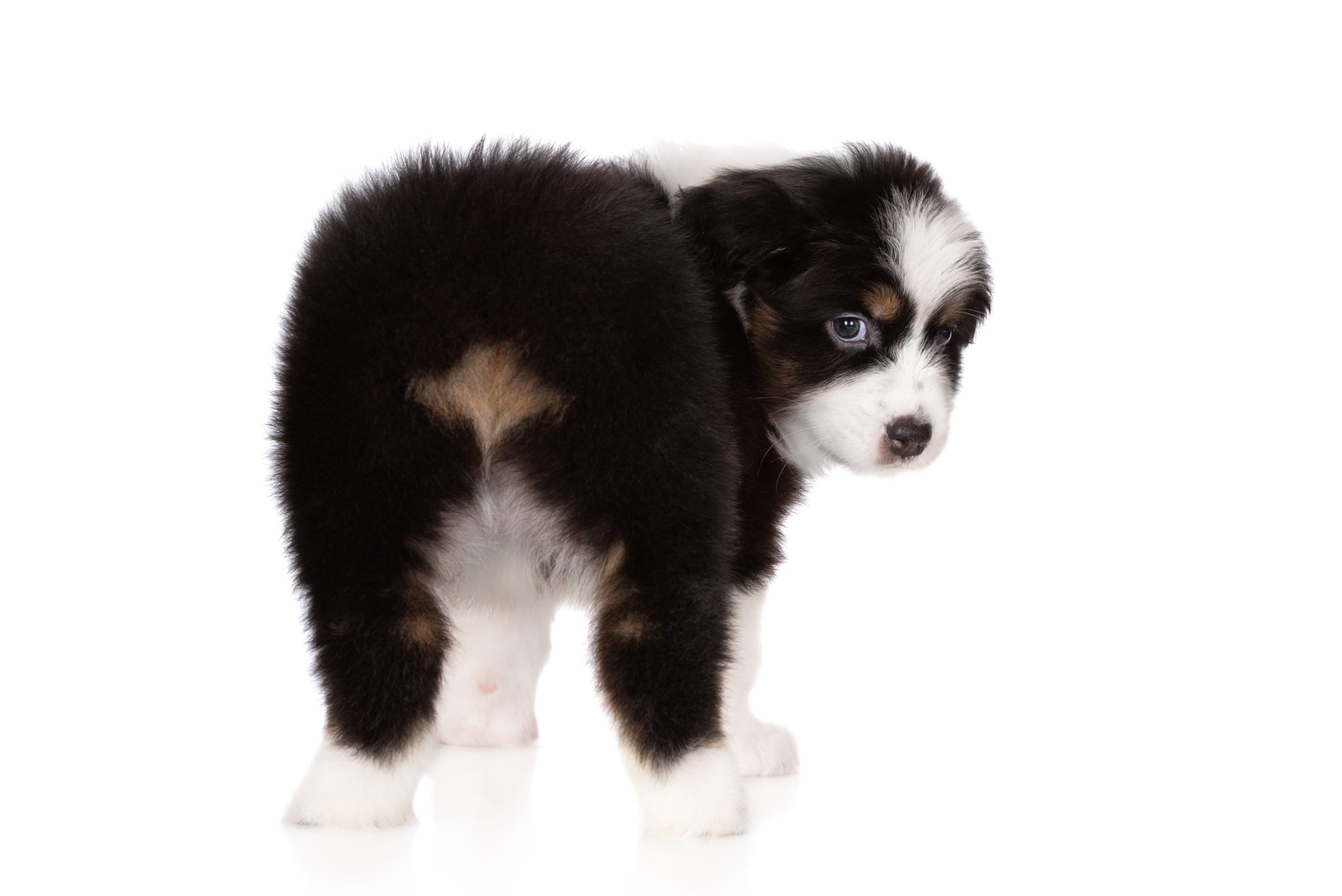Reasons Why Your Dog’s Scooting on the Carpet
Maybe your dog’s rubbing their butt along the kitchen floor while you’re preparing dinner, or across the lawn resulting in grass stains in their hind fur. Scooting is up there at the top of the list of embarrassing things your pet does, right next to mounting someone’s leg, jumping on guests with muddy paws, or begging at the dinner table. Most dogs do this, but all the same, it’s not an enjoyable sight and it’s one you’d sure like to get to the bottom of (no pun intended!).
While it may seem silly or strange, there is a reason for your dog scooting on the carpet, and many times it’s because something is going on back there that they are trying to alleviate. It might be something as mild as an itch, they may be in pain, or it may be a more severe problem that requires medical attention. Here are some likely possibilities for why your dog rubs their butt on the floor.
- Clogged Anal Sacs
Dogs have two little anal sacs on either side of their rear that contain a foul-smelling liquid that releases when they poop. This serves as a biomarker that helps leave a sort of print for other dogs to sniff out. Normally, the bowel movement triggers the anal sacs to empty, but sometimes, fluid can get backed up in the sacs requiring manual anal gland expression. Depending on your pet’s needs, you, your groomer, or your vet can do this either internally or externally.
If the fluid is not expressed either manually or during the bowel movement, the glands within the sacs can become inflamed, solidifying the liquid and hindering its release. When this continuously happens, it can become painful and even become infected.
The best way to tell if your pet needs their anal glands expressed is by taking a look! If they look enlarged or have bloody discharge, it’s time to see your veterinarian. If the glands are very full, your vet can express them. However, if they are severely infected, antibiotics may be prescribed as well as pain medication. In some very extreme cases, surgery may be necessary.
- Irritation Following Grooming
Dogs like spaniels, poodles, or goldens that see the groomer regularly may experience clipper burns or irritation from grooming products that get under their tail and around their rear.
If you notice your pet scooting after a spa day, check their bottom for razor burn or tiny nicks. Try a warm compress to help alleviate irritation. Then, before their next visit, talk with your groomer about possible alternate products if your dog exhibits unusual sensitivities.
- Food Allergies
Food intolerances or allergies can cause some dogs to experience anal sac issues. If watery or soft bowel movements aren’t providing enough pressure to express the glands naturally, the dog’s diet may be the cause. Typically, diets with only one or two types of protein and not enough fiber, or one that is high-grain containing things like corn, rice, oatmeal, soy, or wheat, can be the cause of loose stool which may prevent anal sacs from properly functioning. Consider talking to your vet about the issue and establishing an appropriate diet for your pet. Additionally, adding pumpkin to your pet’s diet can help regulate stool and help the glands express more easily.
- Trauma to Anal Sacs
Your pet may have previously experienced some trauma to their anal sacs. Anal sacs are delicate and can be easily injured by manipulation or excessive squeezing during manual gland expression. They can experience tissue damage and become inflamed. Additionally, they can lose the necessary muscle tone that allows them to express their glands themselves.
- Intestinal Parasites
Parasites like tapeworms could be the culprit for your dog scooting on the carpet or floor. Dogs can develop tapeworms by ingesting flea-carrying tapeworm larvae. These can cause severe irritation or itching around the rear when the tapeworms mature and exit. Signs of tapeworms include itchy rear, scooting, rice-like segments of worms around the anus, on your dog’s bedding, or in their feces. Scooting once or twice is not cause for concern but if you notice excessive scooting behavior, constant biting or licking at the rear, swelling, or abnormalities near the anus, visit your vet for an exam immediately as parasites may be the problem.
It’s not a sight you want to see, but it’s even worse to think of your pup in pain or discomfort. If the problem persists or you suspect your pet is scooting for any of these reasons, reach out to any of our 21 AZPetVet locations ASAP so we can help!
Disclaimer: Not intended to be a substitute for professional veterinarian advice, diagnosis, or treatment. Always seek the advice of your veterinarian with any questions you may have regarding the medical condition of your pet. If you think your pet has a medical emergency, call or visit your veterinarian or your local veterinary emergency hospital immediately.


